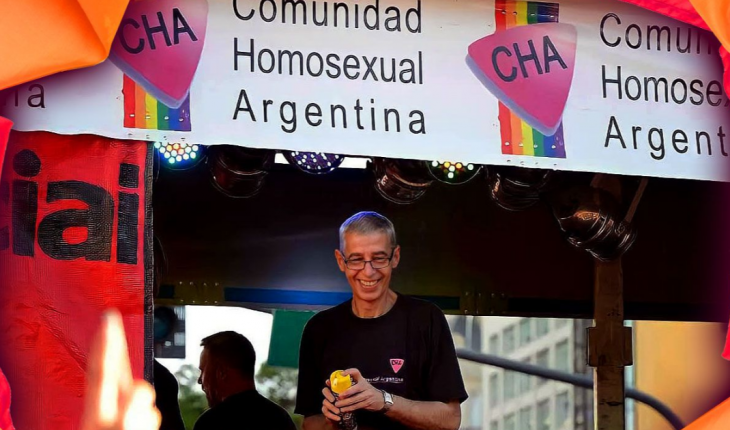This August 31 marks one year since the death of Cesar Cigliutti, one of the referents and most important activists for human rights and the LGBTIQ + collective in Argentina.He died at the age of 63 as a result of a heart attack but, despite his departure, his legacy is immortal since his struggle and commitment marked our history with fire.
Through multiple actions, Cigliutti knew how to raise the flag of pride. After a long legal battle, in 2003 he became with Marcelo Suntheim the first gay couple recognized by a State in Latin America.From 1996 until the day of his death, César presided over the Argentine Homosexual Community (CHA) and was the Secretary General of the Association of Social Security Personnel (APERSES). Before she passed away, she had made headlines for filing a complaint as president of the CHA with the Ministry of Women, Gender and Diversity and the Ministry of Health for an act of discrimination in a health center: they rejected a young man who wanted to donate blood because he was homosexual.
César with his partner, Marcelo Suntheim
Faced with his complaint, the national government through INADI became aware that the Argentine Association of Hemotherapy Immunohemotherapy and Cell Therapy (AAHITC) had included homosexuality as an impediment to blood donation.” The sexual orientation and gender identity of the person as an impediment to blood donation constitutes a discriminatory practice, but it also responds to a medical discourse that has historically pathologized and stigmatized LGBTI+ people, “they said from INADI after the complaint. Ciglutti also gave its support to the Equal Marriage Law and the Gender Identity Law in Argentina. Other milestones in its history of militancy were obtaining the recognition of the death pension for same-sex couples.
Cigliutti with Carlos Jáuregui, another reference of the LGBTIQ+ movement
He also made numerous presentations and collaborated with publications on issues of discrimination, HIV and adoption of homosexual couples. For his enormous activism he was declared Illustrious Citizen of the City of Buenos Aires on May 17, 2011.On the other hand, in 2013 he helped Gabriela Mansilla and her daughter Luana, the first trans girl in the world, to receive their ID according to their self-perceived gender. “The step we are taking is to guarantee the right of children. We have read and heard some statements that Luana was ‘too young’, and we think otherwise,” he said at the time. In her last days of life, she distributed food to the transvestite-trans community and militated together with more than 200 organizations for the National Law of Quota and Transvestite Labor Inclusion that ended up being approved last June.
“I imagine myself in 1984: if someone came from the future and told me that I was going to be able to marry whoever I wanted and that a trans man was going to get pregnant, I would have replied ‘you are crazy’ because … we were debating whether we were sick or not! To be told about getting married was like thinking about The Jetsons,” he said at the time.





